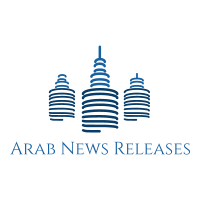Since its launch, the podcast content industry has witnessed a huge development, constant growth and strong competition in the Arab region in the last few years, with some of the leading ones being Saudi-based podcasts.
Saudi podcasts excelled in the Arab region in terms of the number of viewers, and ideas presented, as well as the diversity and quality of the themes addressed.
A joint study made by Northwestern University and the Doha Film Institute shows that three out of ten Arab citizens, aged between 18 and 45, listen to podcasts.
Saudi Arabia ranked first in the Arab region in regards to the number of podcast listeners per population with a rate of 56 percent, followed by Oman with 14 percent, and then the UAE with six percent, as shown in the study.
According to multiple interviews KUNA conducted with Saudi podcast presenters, the quality of content provided and how much it matters to people are important factors in the popularity of the podcast.
The presenter of (Socrates) Omar Al-Jeraisy has rev
ealed that podcasts accommodate everyone. It is a platform that helps create rich and sensational stories and hold discussions, popular among many viewers.
He has also pointed to the Socrates podcast being distinguished, among other identical Saudi programs, because of hosting government leaders and officials, giving it reliability and attraction.
Story-telling and conducting a dialogue is an inherent part of the Saudi culture, which explains the popularity of podcasts, he has pointed out, also noting that not all the Saudi podcasts are special but the ones that have become so because they address the Saudi audience.
Al-Jeraisy believes companies’ entry into the sector of producing and publishing podcasts has made it easy for so many people to make a podcast without any difficulties.
Editor-in-Chief of Independent Arabia Adhwan Al-Ahmari has confirmed that Saudi Arabia is considered one of the most important Arab countries with a media influence, adding that it has become home to the most famous Arabic an
d English podcast programs in the Middle East.
Al-Ahmari pointed out that Saudi Arabia owns the two largest media groups, MBC and the Saudi Research and Media Group (SRMG), indicating that the largest advertising share is taken from the Saudi market.
He has also stated that the spread of podcasts is not surprising but has happened gradually, adding that podcasts can be watched any time.
According to the presenter of the (Jawalan) podcast Mohammad Al-Shathri, what distinguishes podcasts in particular is the availability of a number of them in different genres, something for everyone.
He also pointed to statistics conducted by Radio Eight in 2020, showing that the number of Arabic podcasts reached 500, adding that this number had doubled since then.
Al-Ahmari has reaffirmed that podcasts have contributed to raising awareness, as evidenced by the entry of government agencies in the realm nowadays because it has become an influential platform
Source: Kuwait News Agency
